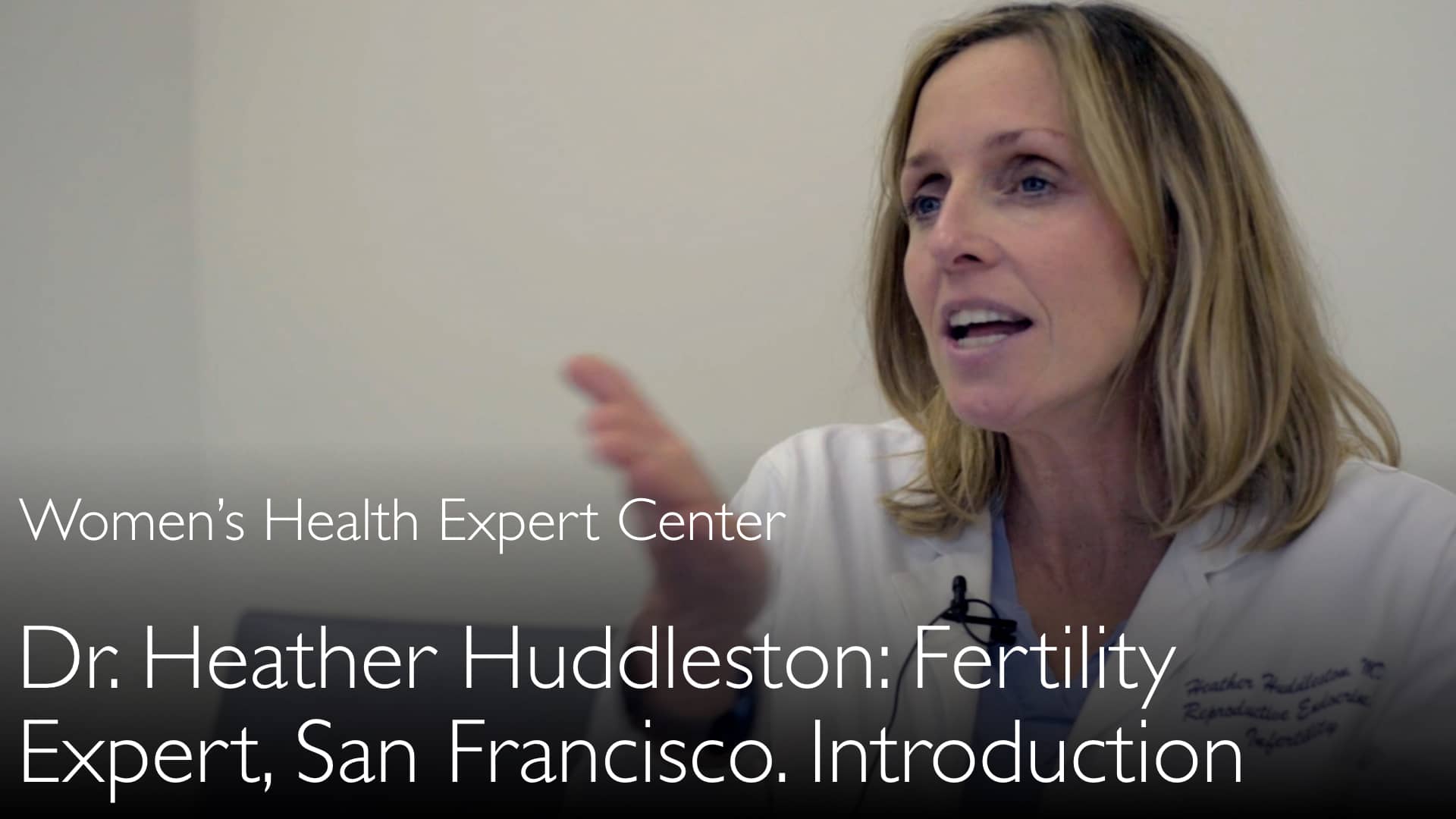Huippuasiantuntija reproduktiivisessa endokrinologiassa ja hedelmättömyydessä, lääketieteen tohtori Heather Huddleston, selittää, että polykystinen ovaario-oireyhtymä (PCOS) on yleisin hedelmättömyyden aiheuttaja epäsäännöllisen ovulaation takia. Hän kuvailee tehokkaita hoitomuotoja, kuten klomifenisitraattia (Clomid) ja letrotsolia (Femara), jotka palauttavat hedelmällisyyden suurimmalle osalle potilaista. Lisäksi Huddleston käsittelee insuliiniresistenssin sekä elämäntapatekijöiden merkittävää vaikutusta tämän yleisen endokrinisen häiriön ilmenemiseen ja vakavuuteen.
Polycystisen ovaario-oireyhtymän (PCOS) hedelmättömyyshoito: Syyt ja ratkaisut
Siirry osioon
- PCOS:n ja hedelmättömyyden yhteys
- PCOS:n syyt ja insuliiniresistenssi
- Hedelmällisyyshoidot PCOS:lle
- Elämäntapa ja painon vaikutus
- PCOS:n yleisyys länsimaisessa elämäntavassa
- PCOS:n monimuotoisuus ja diagnostiikka
- Koska tarvitaan aggressiivisempaa hoitoa
PCOS:n ja hedelmättömyyden yhteys
Polycystinen ovaario-oireyhtymä on naisten yleisin hedelmättömyyden syy, ja se vaikuttaa noin 5–10 %:iin kaikista naisista. Tohtori Heather Huddlestonin mukaan PCOS on naisen yleisin endokrinen häiriö, jolle on tyypillinen kolme oiretta: epäsäännölliset kuukautiset, kohonneet androgenitasot (jotka voivat aiheuttaa aknea tai liikaa karvoitusta) ja polykystisten munasarjojen näkyminen ultraäänikuvassa. Suurin hedelmällisyysongelma PCOS-naisilla on anovulaatio, eli munasolun säännöllisen vapautumisen puute, mikä ilmenee hyvin epäsäännöllisinä tai puuttuvina kuukautisina.
PCOS:n syyt ja insuliiniresistenssi
Polycystisen ovaario-oireyhtymän taustasyyt ovat monimutkaiset. Tohtori Heather Huddlestonin mukaan tarkkaa syytä ei vielä tiedetä, mutta keskeinen tekijä on insuliiniresistenssi. Tämä johtaa kohonneisiin insuliinitasoihin veressä, mitä tavataan usein PCOS-naisilla. Insuliiniresistenssin uskotaan häiritsevän munasarjojen normaalia toimintaa, aiheuttaen hormonaalisia epätasapainoja ja ovulaation puutteen. Tämä metabolinen osa yhdistää PCOS:n laajempiin terveysongelmiin.
Hedelmällisyyshoidot PCOS:lle
Tohtori Heather Huddlestonin mukaan PCOS:ista johtuva hedelmättömyys on erittäin hoidettavissa. Hoidon päätavoite on saada aikaan säännöllinen ovulaatio. Etulinjan hoito koostuu yleensä tablettilääkkeistä, joita otetaan viisi päivää. Klomifeenisitraatti (Clomid) ja letratsooli (Femara) ovat yleisimpiä lääkkeitä, joilla stimuloidaan munasolun kehitystä ja vapautumista. Nämä hoidot ovat erittäin tehokkaita: noin 70–80 % PCOS-naisista saa raskauden aikaan näiden avulla.
Elämäntapa ja painon vaikutus
Elämäntavalla ja painolla on merkittävä vaikutus PCOS:n ilmenemiseen. Tohtori Heather Huddlestonin mukaan osalla naisista voi olla piilevä PCOS, joka tulee näkyviin vasta painonnousun myötä. 5–10 kilogramman painonnousu, erityisesti istumatyöläisellä, voi nostaa insuliinitasot niin paljon, että keho siirtyy täyteen PCOS-oireiluun. Tämä korostaa, miten elämäntapatekijät voivat vaikuttaa oireyhtymän vakavuuteen.
PCOS:n yleisyys länsimaisessa elämäntavassa
Tohtori Heather Huddlestonin mukaan PCOS:n yleisyys saattaa liittyä moderniin länsimaiseen elämäntapaan. Sokeripitoiset ja prosessoidut ruoat pahentavat insuliiniresistenssiä. Tohtori Anton Titovin mukaan sokerin kulutus on nostanut keskimääräisiä insuliinitasoja lähes kolminkertaiseksi viime vuosikymmeninä, mikä korreloi lihavuuden, metabolisen oireyhtymän ja joidenkin syöpien yleisyyden kanssa. Tämä ympäristö tekee PCOS:ista todennäköisesti yleisemmän ja vakavamman verrattuna väestöihin, joilla on erilaiset elintavat.
PCOS:n monimuotoisuus ja diagnostiikka
Polycystinen ovaario-oireyhtymä on monimuotoinen, eli sillä on useita taustasyitä ja se ilmenee eri tavalla. Tohtori Heather Huddlestonin mukaan tästä johtuu, että sitä kutsutaan oireyhtymäksi eikä sairaudeksi. Osa naisista sairastaa kliinistä PCOS:ia riippumatta painostaan tai elämäntavastaan, kun taas toisille se liittyy metaboliseen terveyteen. Tämä monimuotoisuus tekee diagnosoinnista ja hoidon suunnittelusta haastavaa, mikä korostaa perusteellisen lääkärinarvion tärkeyttä.
Koska tarvitaan aggressiivisempaa hoitoa
Pienellä osalla PCOS-naisista, jotka eivät reagoi tablettilääkkeisiin, on tarpeen aggressiivisempi hoito. Tohtori Heather Huddlestonin mukaan seuraava vaihe on ruiskeina annettavat gonadotropiinit, jotka ovat voimakkaampia ja vaativat päivittäisiä pistoksia. Onneksi suurin osa potilaista pärjää tablettilääkityksellä. Lääketieteellinen toinen mielipide voi olla tärkeä PCOS-diagnoosin vahvistamisessa ja hoidon suunnittelussa.
Koko transkriptio
Lääketieteen tohtori Anton Titov: Hedelmättömyys ja polycystinen ovaario-oireyhtymä liittyvät usein toisiinsa. Miten PCOS aiheuttaa hedelmättömyyttä? Miten PCOS-hedelmättömyyttä hoidetaan? Mitkä elämäntavat voivat paljastaa piilevän PCOS:n?
Johtava hedelmällisyysasiantuntija selittää polycystisen ovaario-oireyhtymän ja hedelmättömyyden välisen yhteyden.
Polycystinen ovaario-oireyhtymä on yleinen hedelmättömyyden syy. Se vaikeuttaa raskauden saantia ovulaatio-ongelmien vuoksi.
Klomifeenisitraatti (Clomid) on tehokas lääke PCOS-hedelmättömyyteen. Insuliiniresistenssi haittaa raskauden saantia. Insuliiniresistenssi lisääntyy painon noustessa. Lihavuus voi myös paljastaa piilevän PCOS:n.
Polycystisessä ovaario-oireyhtymässä raskaus on usein mahdollista saada aikaan tablettilääkkeillä kuten Clomid ja Femara, mutta hedelmättömyysasteet pysyvät korkeina. Joskus tarvitaan ruiskeina annettavia lääkkeitä.
Hedelmättömyys ja polycystinen ovaario-oireyhtymä liittyvät läheisesti toisiinsa. Lääketieteellinen toinen mielipide voi vahvistaa PCOS-diagnoosin ja hoidon tarpeen.
Lääketieteellinen toinen mielipide auttaa valitsemaan parhaan hoidon. Hanki toinen mielipide varmistaaksesi, että hoitosi on paras. Hedelmättömyys ja PCOS voidaan hoitaa menestyksekkäästi.
Lääketieteen tohtori Anton Titov: Polycystinen ovaario-oireyhtymä (PCOS) on yleinen häiriö. Mikä se on? Miten se vaikuttaa hedelmällisyyteen? Mitkä ovat yleisimmät hoidot?
Lääketieteen tohtori Heather Huddleston: PCOS vaikuttaa noin 5–10 %:iin naisista. Se on naisen yleisin endokrinen häiriö. Siihen liittyy epäsäännöllisiä kuukautisia ja kohonneita androgeenitasoja.
PCOS-naisilla on usein korkeammat testosteronitasot, aknea tai liikaa karvoitusta. Ultraäänikuvassa näkyy polykystisten munasarjojen tyypillinen kuva. Nämä muodostavat klassisen oirekolmikon.
Suurin ongelma hedelmällisyyden kannalta on, että naiset eivät ovuloi säännöllisesti tai lainkaan. He eivät vapauta munasolua, mikä näkyy epäsäännöllisinä tai puuttuvina kuukautisina.
Lääketieteen tohtori Anton Titov: Mikä on taustalla oleva syy? Mikä aiheuttaa PCOS:n?
Lääketieteen tohtori Heather Huddleston: Syytä ei vielä täysin tunneta. PCOS:lla on todennäköisesti useita syitä. Uskomme, että insuliiniresistenssi aiheuttaa osan munasarjojen häiriöistä. Insuliiniresistenssi tarkoittaa korkeita insuliinitasoja veressä.
PCOS-naisilla on usein korkea insuliiniresistenssi. Hyvä uutinen on, että PCOS-hedelmättömyys on erittäin hoidettavissa. Autamme naisia ovuloimaan säännöllisemmin.
Useimmat PCOS-naiset pärjäävät tablettilääkkeillä. Klomifeenisitraatti (Clomid) ja letratsooli (Femara) ovat yleisiä valintoja. Näitä lääkkeitä otetaan viisi päivää, ja ne auttavat munasolun kehityksessä ja vapautumisessa.
Nämä hoidot auttavat noin 70–80 % naisista saamaan raskauden aikaan. Pieni osa naisista ei reagoi näihin, jolloin tarvitaan ruiskeina annettavia lääkkeitä. Onneksi useimmat eivät tarvitse tätä.
Lääketieteen tohtori Anton Titov: Mainitsit insuliiniresistenssin roolin PCOS:ssa. Keskustelin tohtori Robert Lustigin kanssa sokerin vaikutuksista insuliiniresistenssiin.
Insuliinitasot ovat nousseet lähes kolminkertaisiksi viime vuosikymmeninä. Onko PCOS:n yleisyys lisääntynyt? Onko yhteyttä sokerin kulutuksen ja hedelmättömyyden välillä?
Lihavuus korreloi korkeiden insuliinitasojen kanssa. Jopa syöpäriski voi liittyä siihen. Mitä tästä tiedetään?
Lääketieteen tohtori Heather Huddleston: PCOS:n yleisyys on saattanut lisääntyä, mutta emme voi olla varmoja. Korkealaatuista tutkimusdataa ei ole.
Osa naisista saattaa olla oireettomia, kunnes he lisäävät painoa. 5–10 kilogramman painonnousu istumatyöläisellä voi laukaista PCOS-oireet insuliinitason noustessa.
Toisilla naisilla on kliinistä PCOS:ia riippumatta painosta tai elämäntavasta.
Lääketieteen tohtori Anton Titov: Tästä syystä sitä kutsutaan oireyhtymäksi.
Lääketieteen tohtori Heather Huddleston: Aivan. PCOS on monimuotoinen, ja sillä on useita syitä. On vaikeaa luokitella kaikkia potilaita samaan ryhmään.
Länsimainen elämäntapa saattaa tehdä PCOS:ista yleisempiä ja vakavampia. Erilaisessa ympäristössä oireet voisivat olla vähäisempiä.
Hedelmättömyys ja polykystinen ovaario-oireyhtymä. Polykystinen ovaario-oireyhtymä (PCOS) on yleisin hedelmättömyyden aiheuttaja.





